Our animal friends


Romantic Nights
Peaceful evenings with stunning sunset views.
Family Fun
Hands-on time with our playful alpacas and goats.
About alpacas
Alpacas are gentle and curious and make great pets, but you always need at least two as they are herd animals and will die if alone. While very friendly (usually) they do sometimes spit at people or each other but only when they feel threatened or abused. Sometimes if there are dominance issues in a pac they will neck wrestle which can involve a lot of spitting but fortunately this is rare and they usually get along with each other. While you can eat alpaca meat, often as salami, we would never think of it. Alpacas don't have teeth in the bottom-front of their mouths. This gives them the appearance of having an under bite. Alpacas can live for 20-25 years. Alpaca fibre is much like sheep’s wool, but warmer, not itchy and contains no oils. It is lacking in lanolin, which makes it hypoallergenic and also allows it to be processed without the need for high temperatures or harsh chemicals in washing.
Alpacas hum when they are happy but also have a loud birdlike screech when they feel threatened or alarmed. One nice thing about alpacas are they a very tidy with a paddock having several dung piles rather than random pooping as most animals do. When moving alpacas these dung piles can slow thing up a lot as it seems they can never pass a dung pile without adding to it.
In feeding terms an alpaca eats only 3/4 as much as a sheep. Because they have a three-chambered stomach they are very efficient at extracting nutrients from what they eat. A 57 kg animal eats less than 1kg of grass a day. Ours graze on grass with a bit of hay and bailage over winter. Each morning they get a mix of lucerne chaff and alpaca pellets. This is when they are at their greediest/most sociable, guests are welcome to join in
A baby alpaca is called a cria (cree-ah) and very cute. Although they can be breed and born any time of the year we time ours so that they are born in the warmer months. The female alpaca has a gestation period of 242 to 345 days and gives birth to just one offspring, usually quickly and without drama. The crias' are usually up and walking within an hour. Alpacas are very easy to look after. They don't eat much, they get a couple of vitamin injections a year plus a toe nail clipping every few months and need shearing once a year. All our alpacas are of the huacaya breed however there is another breed of alpaca in NZ, the suri which has long fibres that form long locks. One of our young boys, Maui, won first prize for champion black huacaya in the National Alpaca show. All the alpacas have names, Joanne can reel them off, Neil tends to start making up names after the first few.
Explore quiet trails with breathtaking rural scenery.
Write your text here...
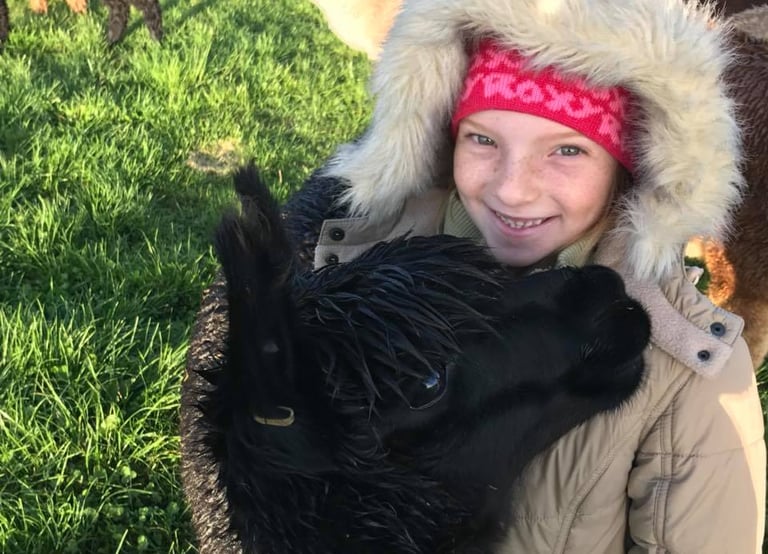

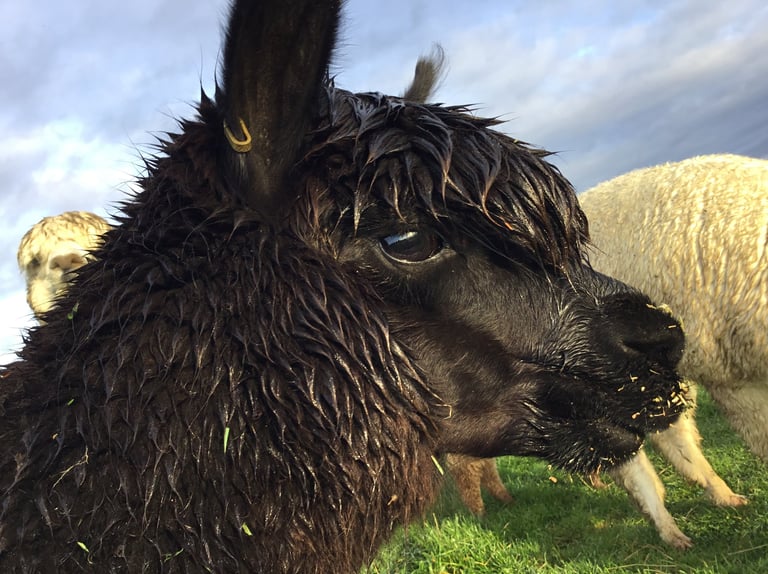

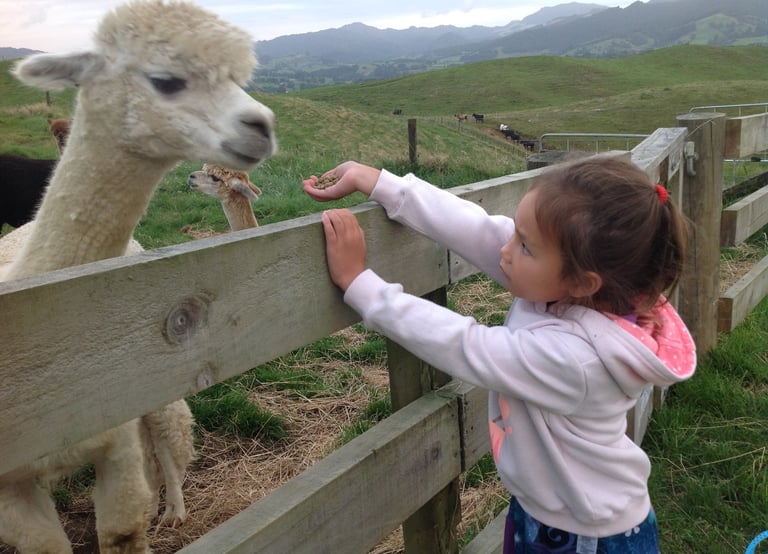

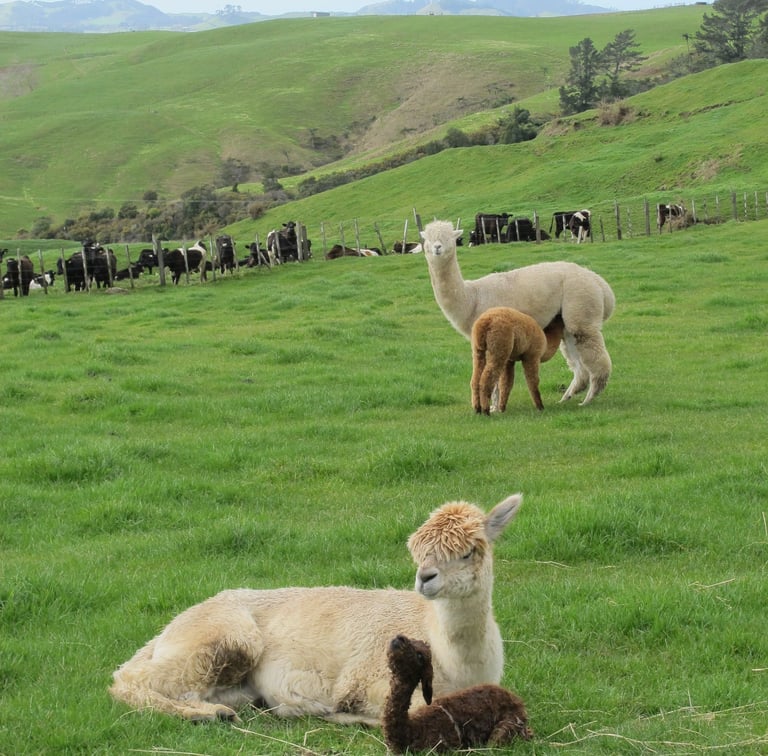

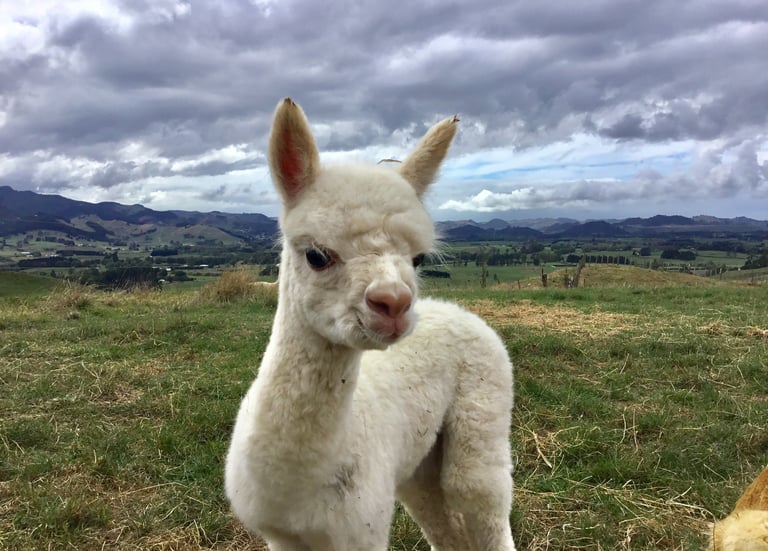


A magical stay surrounded by gentle alpacas and breathtaking views—pure bliss!
Emma & Jay

Our kids loved meeting the goats and alpacas; a truly unforgettable family getaway.
The Lees

